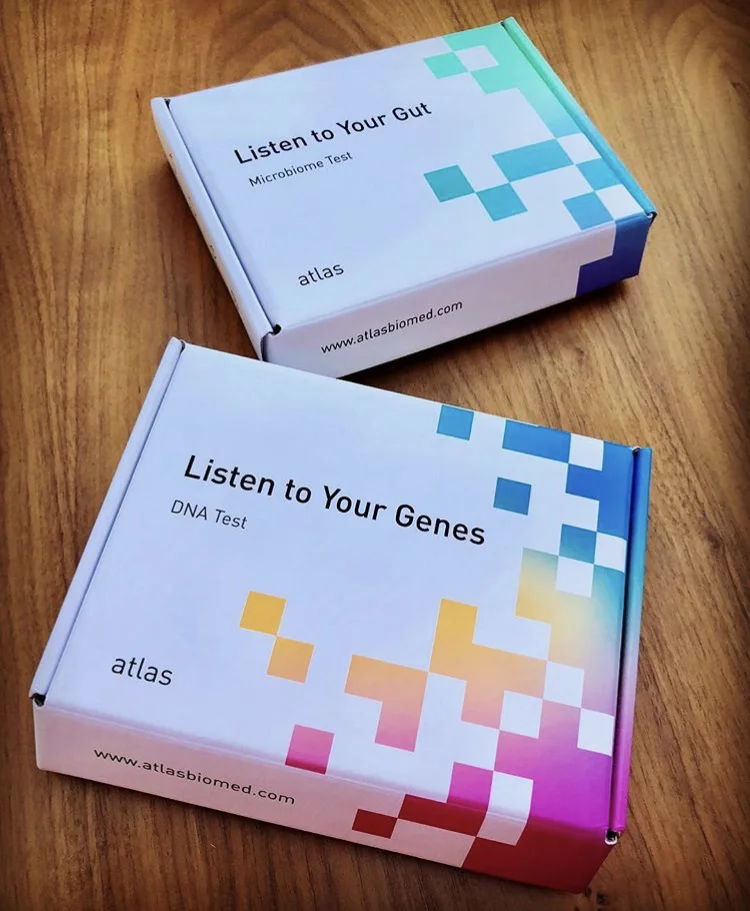I posted poo to a health-tech startup
Users send away samples of their stools and saliva to be analysed
Given the fact that you have consciously clicked on this article, I’m going to assume you are totally cool with talking about poo.
With that in mind, I’ll tell you why an apparently increasing number of people have been posting samples of their stools to health startups.
Companies like Atlas Biomed, Viome and uBiome offer you the chance of having your sample analysed to discover the types of microorganisms living inside your gut.
But why?
Atlas, the firm that sent me my test kit for free, explains on its website:
“Your body is inhabited by millions of bacteria that are involved in internal processes.
“They can be helpful, but they can also be harmful.
Using the results of your test, the company provides customers with food suggestions, because:
“Analysing your gut bacteria will allow us to determine the state of your microflora and make personalised dietary recommendations,” it says.
What’s the fuss about gut health?
It’s thought that up to 80 percent of our immune tissue sits in the digestive tract.
So as you can imagine, maintaining a healthy gut is a big deal.
If you’re new to all this gut stuff, I recommend watching HealthHackers episode 2 with Professor Tim Spector and author of The Diet Myth, where we discussed gut-healthy eating, the damaging effects of fast food on his son’s microbiome, and the nature of faecal transplants.
Another episode worth watching if you’ve ever dealt with IBS, depression or skin problems is HealthHackers episode 14 with gut health author Shann Nix Jones.
Microbiome test sample tube
My gut feeling
I was smugly expecting a good poo result.
By ‘good,’ I mean I was predicting there would be evidence of a diverse range of bacteria (which is the goal for overall health when it comes to the gut) because - I believed - I had been eating a generally varied diet - including a ton of veg.
I also start every day with a glass of probiotic kefir (read why, here) and am a big fan of other fermented foods that are said to be full of beneficial bugs for the gut.
But when I read my microbiome test results, erm…
‘Very vulnerable’
There was a lot to take in, some good news, some bad news, so I’m going to skip straight to the standout bad points (because I don’t believe anyone really cares how awesome my potential for butyrate synthesis was. BTW: It was good.)
The main bit of bad news was that I only scored four out of 10 on how diverse my gut bacteria were.
Co-founder and CEO of Atlas Biomed, Sergey Musienko, went as far as to describe my microbiota as “very vulnerable” and said that any use of antibiotics or non-steroidal anti-inflammatory drugs (like Ibuprofen, aspirin etc) could cause “undesirable consequences.”
He had further bad news for me.
In rating the diversity of my gut microbes, I scored four out of 10
Say what?
“You have 41% of bacteroides, almost half of the composition, which again is not very good.
“Bacteroides themselves are conditional pathogens, normally present in microbiota, but in smaller quantities.”
I was already slightly lost in microorganism jargon by now.
“Another thing to look at - low level of resistance against diseases, because there is a decrease in important symbiotic bacteria.
“Namely, there is almost no Akkermansia, which lives close to the gut wall, feeds on mucin, and is more abundant in subjects with low body weight and fat mass with normal metabolism.
“Bifidobacteria are not detected, at the lower limit of the average representation of lactobacilli bacteria.”
Undoing the damage
If you’re wondering - like I was - what on earth I was supposed to do to help myself out of this seemingly doomed gut status - Atlas told me:
“To improve your microbiome we suggest eating more fibre from the Top-10 list of recommended foods. As simple as that.”
The food recommendations had been personalised for me based on what my gut was lacking, as well as the results of a DNA spit sample test that I had also completed.
“Adding [the foods] to your diet can reduce your disease risk, strengthen your immune system and improve well-being,” according to Atlas.
On my eating recommendations page, foods like oats, barley and wholegrain wheat were listed.
I tend to follow a fairly low-carb lifestyle and I don’t think I’ve eaten those foods for years. Come to think of it, when have I ever eaten barley?
The suggestion seemed to be that I needed to eat an even wider range of foods to nurture a more diverse microbiome.
“The more diverse the microbiome is, the more adaptable it will be to future disturbances,” Sergey said.
Some of my recommended foods; Atlas says adding them to my diet can reduce disease risk
Is low-carb bad for gut health?
According to Sergey, a low carb-diet (for example, a ketogenic diet - which I followed for about four years until 2017) “may negatively impact the gut diversity.”
But he added that the diet “also reduces gut inflammation, primarily due to the restriction of sugars.”
I wondered about other diets that excluded certain foods. Sergey said: “it really depends on what these foods are. For example, it is impossible to say that vegetarians have less healthy microbiota.”
“My point is that the diversity of foods is very important. We often see people eating a lot of veggies but always the same ones. It doesn’t contribute to the diversity of their biota,“ he told me.
Maybe that’s where I was going wrong - perhaps my varied diet just wasn’t varied enough.
Other notable bits from my results
I appeared to be a carrier of a gene variant that is responsible for Haemochromatosis, Type 1 - a rare condition in which too much iron builds up in the body. Atlas said this should be taken into account when planning a family.
I also discovered that I am classed as having a high risk of coronary heart disease, Crohn’s disease, atopic dermatitis and migraines - but I could “effectively prevent” these conditions long before they develop.
My results showed a ‘high risk’ for certain conditions
There was an increased risk of obesity and Alzheimer’s too.
Among the recommendations from Atlas: I could start drinking a cup of coffee everyday to help prevent Alzheimer’s (although I don’t like the effects of caffeine and quit years ago), and limit my intake of foods like butter, cheese and chocolate to improve my protection against coronary heart disease.
I consulted Professor Tim Spector about the latter advice which seemed at odds with some recent headlines that have suggested diets higher in saturated fat could in fact bring health benefits.
Tim said: “Butter is neutral for heart health and cheese and chocolate (if dark), on average, are beneficial.”
Given Tim’s background in gut investigations and genetics, I asked if he thought microbiome tests like the one from Atlas could really be accurate.
“They do accurately measure the composition of gut microbes,” he told me.
“The problem is more linking it to health data.
“They will get better as the databases increase in size to millions of people and we start to have data over time – so we can see real predictors of health rather than associations with health.”
Professor Tim Spector suggests eating polyphenol rich foods like coloured vegetables for a healthy gut
Steps everyone can take for a healthier gut
Until larger data sets exist, Tim believes the kits serve as “a useful baseline for people who want to improve their gut microbes.”
In the meantime, he gave me his six steps to optimal gut health:
1. Double your fibre intake to over 30 grams per day.
2. Eat over 20 types of plant per week.
3. Eat a fermented food every day, such as yogurt, kefir, or kimchi.
4. Eat more polyphenol rich foods like berries, coloured vegetables, coffee, tea, red wine, and olive oil.
5. Skip a meal once a week to give your microbes a holiday.
6. Avoid ultra-processed foods and artificial sweeteners.
Since receiving my personalised eating recommendations from Atlas, I still haven’t eaten any barley. Or resumed my old coffee habit. But I have eaten some of the other foods on my recommendations list.
As for those potential “undesirable consequences” Sergey warned me of - I’m remaining vigilant.






